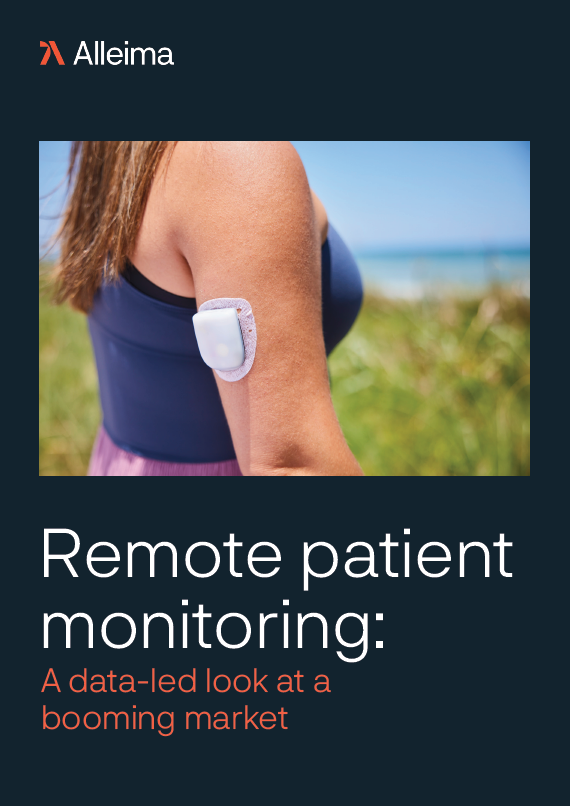Jemima Walker is an associate analyst in GlobalData’s Thematic Intelligence team. Her expertise lies in the healthcare industry and in themes including cloud, robotics, ecommerce, healthtech, and cybersecurity.
Lara Virrey: What are the biggest challenges facing medical devices companies today?
Jemima Walker: Two of the biggest challenges facing the medical device industry today would include regulation and supply chain disruption. Medical device companies are under some of the strictest data privacy regulations worldwide. Alongside strict data privacy regulations such as the US Health Insurance Portability and Accountability Act (HIPAA), medical device manufacturers must comply with further rules to ensure the safety and performance of medical devices in any country in which they operate.

US Tariffs are shifting - will you react or anticipate?
Don’t let policy changes catch you off guard. Stay proactive with real-time data and expert analysis.
By GlobalDataEach country and each region has different regulatory rules for tracking medical devices and facilitating recalls in the event of a fault, such as the US Unique Device Identification (UDI) system, the European Medical Device Regulation (MDR) system, and the China Medical Device Product Registration (CMDR) system.
Medical device companies supply chains can be inefficient and vulnerable to infrastructure and performance issues. The Covid-19 pandemic exposed many of these vulnerabilities, leading to widespread disruptions in supply.
Companies had to fulfil staggering demand, prevent manufacturing delays, and manage supply chain bottlenecks while ensuring products were kept in strictly regulated environments. Supply chain disruption will continue as many countries with larger manufacturing capabilities (e.g., China) continue to battle waves of Covid-19 infections.
High demand will likely continue as populations grow, particularly in countries with reduced supply chain infrastructure. To prevent the reduced availability of medicines and medical devices due to supply chain disruption medical device manufacturers must invest in supply chain technologies to move products from production to end users without delay.
Lara Virrey: How can cloud help medical devices companies address these challenges?
Jemima Walker: Cloud computing can help medical device companies to facilitate device recall and meet industry requirements. Connecting devices to the cloud allows manufacturers to identify devices that need to be recalled and give information on a device’s efficiency and quality. Keeping track of medical devices (e.g., implants) helps to protect patient health and meet device recall regulations.
To manage supply chain disruption, digitalising data collection in supply chains and moving it to the cloud provides companies with real-time insights into the state of a supply chain, helping them anticipate shortages, reduce errors, forecast demand, and enhance compliance checks and traceability.
Lara Virrey: What are the main use cases for cloud computing in the medical devices industry?
Jemima Walker: In general, cloud computing provides a more agile approach to operating IT architecture. It helps medical device companies to cut costs by removing the need to invest in access IT hardware and software as needed, rather than buying assets upfront. This gives them faster access to application updates, enables them to scale quickly, and cuts the cost of managing their own IT architecture.
Another key use case for cloud computing in the medical devices industry is to enable virtual care technologies such as remote patient monitoring (RPM) devices, digital therapeutics (DTx), mobile health (mHealth) apps, and telemedicine.
While usage patterns indicate that the demand for virtual care caused by the Covid-19 pandemic may have peaked, GlobalData polls suggest that there will be a demand for these services beyond the pandemic.
Cloud-enabled devices for virtual care will continue to appear in the industry, with GlobalData’s Medical Device Approval Analyser forecasting that 10 cloud-connected RPM and telemedicine devices will receive regulatory approval by 2025.
Lara Virrey: Who is the biggest winner in medical devices in terms of cloud right now, and why?
Jemima Walker: GE Healthcare, Roche, Philips, and Siemens Healthineers are some of the leading adopters of cloud computing in the medical devices industry. Each has significantly invested in cloud computing both through the development of their own cloud platforms and through partnerships with key cloud vendors such as AWS, Microsoft Azure, and Google Cloud.
Lara Virrey: Who is the biggest loser in medical devices in terms of cloud right now, and why?
Jemima Walker: Any company not investing in cloud computing will fail to reap the benefits of the technology. Nowadays this goes beyond simply migrating some operations to the cloud but also taking advantage of its many use cases across medical devices.
For example, a medical device manufacturer connecting its devices to the cloud will be able facilitate recall of devices at a much faster rate than one that does not. Medical device companies that don’t appear to have made many investments in cloud computing include Biotronik and MicroPort.
Lara Virrey: What are the biggest barriers to implementation of cloud computing in the medical devices industry?
Jemima Walker: Data privacy and sovereignty are two of the largest barriers to the implementation of cloud computing in the medical device industry. Moving data from in-house corporate data centres to the cloud could open businesses up to a higher risk of cyberattack, as data is no longer kept behind company firewalls.
However, this is very dependent on the company’s own cybersecurity capabilities versus the cybersecurity capabilities of a vendor. Large cloud vendors will have teams of hundreds dedicated to data privacy and governance, which will be more effective than the considerably smaller cybersecurity teams of small medical device companies.
Data sovereignty poses an issue for medical device companies wishing to work with cloud providers which do not have a data centre in the same country, thereby slowing adoption. Data sovereignty laws ensure that personal data is not accessed by other countries and jurisdictions, and for some countries such as China and Russia this means keeping personal data within national borders.
To increase implementation of cloud computing in the medical device industry and overcome the barrier of data sovereignty, cloud vendors must deploy data centres in each market to store data domestically, but this will provide more challenges for the vendor with handling different internet governance regulations in the many countries it operates in.




